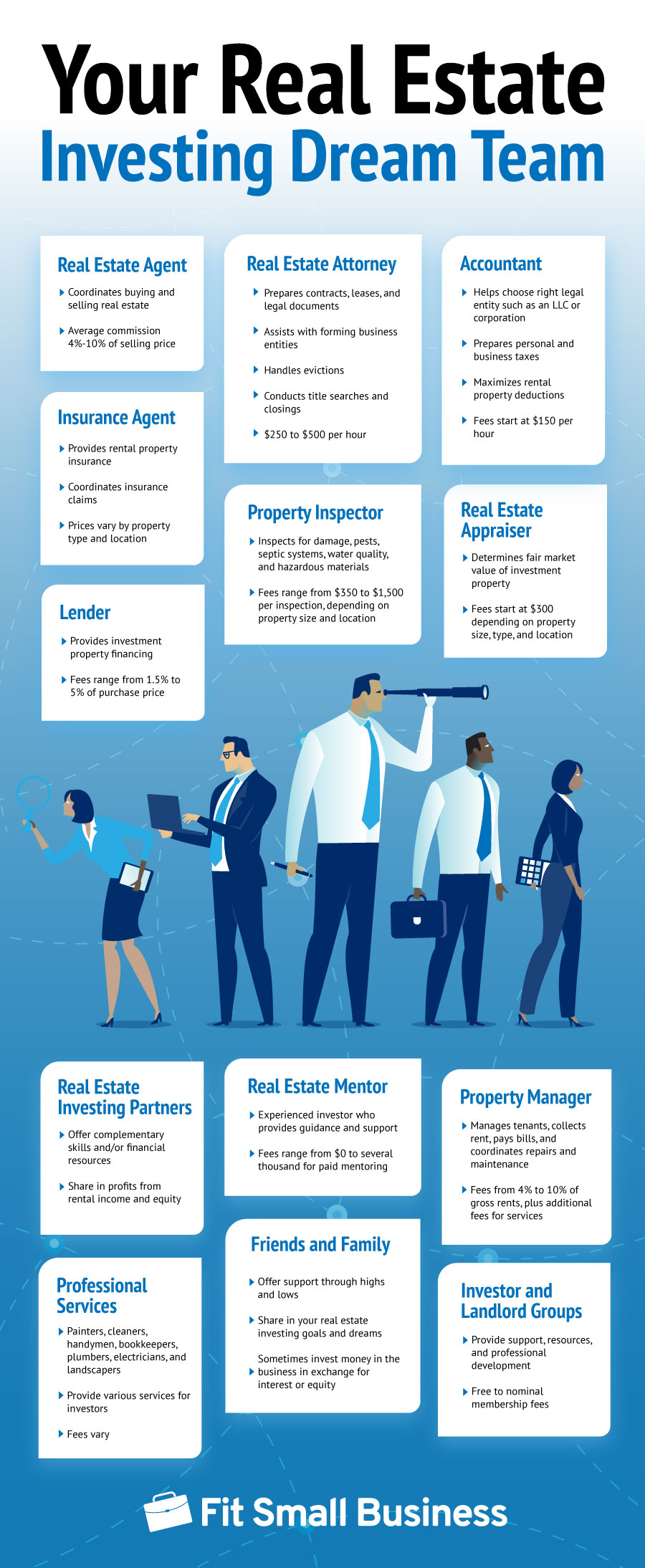
Introduction
Real estate investing is a popular way to build wealth . Real estate investors buy, lease, and eventually sell properties to create financial stability. This guide provides an overview of what it means to be a real estate investor, outlining different types of real estate investments, strategies for success , and potential challenges.
Types of Real Estate Investments
1. Investing in Residential Properties
- Single-Family Homes: Homes intended for individual families. These are popular among novice investors due to their affordability and simplicity in management .
- Multi-Family Properties: Buildings with multiple units, such as duplexes, triplexes, and apartment complexes. They generate more rent but need increased oversight .
- Vacation Rentals: Homes leased for short stays, typically via sites like Airbnb. These can generate higher income but may have higher vacancy rates and require active management .
2. Commercial Real Estate
- Office Buildings: Buildings rented out for office purposes. They often have long-term leases , offering consistent revenue .
- Retail Properties: Buildings leased to retail businesses, such as shopping centers, malls, and storefronts. Success is linked to the success of the tenants .
- Industrial Properties: Warehouses, manufacturing facilities, and distribution centers. These have long leases and low management needs .
3. Industrial Real Estate
- Warehouses: Large storage spaces for goods and materials. Demand is driven by e-commerce growth .
- Manufacturing Facilities: Sites for the production and assembly of goods. These require specialized knowledge for investment .
- Distribution Centers: Facilities for distributing goods. High demand in supply chain management .
4. Investing in Land
- Undeveloped Land: Raw land without any development. It offers opportunities for building but can be risky .
- Developed Land: Parcels that are development-ready. Requires major capital and development skills.
- Agricultural Land: Property used for agricultural purposes. Offers long-term stability but requires farming expertise .
Strategies for Real Estate how do you wholesale real estate Investing
1. Long-Term Holding Strategy
- Overview: Purchase properties to rent out and hold them for the long term to benefit from rental income and property appreciation.
- Pros: Consistent rental income, tax advantages, and property value growth.
- Cons: Demands management effort, capital commitment, and market dependency.
2. Fix and Flip
- Overview: Purchase undervalued homes, refurbish them, and sell for profit.
- Pros: Potential for high short-term profits, ability to improve property value.
- Cons: Significant risk, needs renovation expertise, reliant on market conditions.
3. Property Wholesaling
- Overview: Locate undervalued homes, contract them, and transfer the contract for a fee.
- Pros: Low capital requirement, quick turnaround, minimal property management.
- Cons: Needs to find sellers and buyers, lower profit margins.
4. Investing in REITs
- Overview: Invest in a company that owns and operates income-producing real estate. REITs are traded on stock exchanges.
- Pros: Liquidity, diversification, passive income, professional management.
- Cons: Market volatility, less control, fees and expenses.
5. Real Estate Crowdfunding
- Overview: Combine funds with others to invest in properties through online platforms.
- Pros: Affordable entry, diverse investments, involvement in significant projects.
- Cons: Lack of direct control, associated fees, inherent risks.
How to Become a Real Estate Investor
Education and Research:
Learn the Basics: Gain knowledge about real estate trends, funding methods, property upkeep, and investment approaches.
Networking: Engage with investment communities, participate in seminars, and network with seasoned investors.
Set Investment Goals:
Define Objectives: Clarify your investment aims, focusing on income
Set Investment Goals
- Define Objectives: Clarify your investment aims, focusing on income, growth, or diversification.
- Risk Tolerance: Understand your risk comfort level and pick strategies that match.
Develop a Business Plan
- Market Analysis: Study target areas, property kinds, and investment outcomes.
- Financing Strategy: Outline your funding strategy, considering mortgages, loans, and savings.
Build a Team
- Key Professionals: Gather a team of agents, lawyers, accountants, managers, and contractors.
- Networking: Keep expanding your professional network for support.
Start Small
- Initial Investment: Invest in smaller properties how to do wholesale real estate or easier projects initially.
- Learn and Adapt: Learn from your initial investments and adjust your strategies accordingly.
Scale Up
- Growth: Gradually increase the size and complexity of your investments as you gain experience and confidence.
- Diversification: Diversify your portfolio to include different types of properties and locations.
Challenges and Risks in Real Estate Investing | Potential Challenges and Risks
1. Market Volatility
- Economic Factors: Economic shifts, interest rates, and policies can affect real estate markets.
- Mitigation: Monitor market trends and modify strategies accordingly.
2. Property Management
- Tenant Issues: Tenant problems, vacancies, and collecting rent can be difficult.
- Solutions: Consider hiring a management company or enhancing your management skills.
3. Financing and Cash Flow
- Funding Challenges: Getting funding and managing cash flow can be challenging.
- Strategies: Plan your financing well and maintain an emergency reserve fund.
4. Legal and Regulatory Issues
- Compliance: Stay compliant with laws at all levels for your investments.
- Advice: Work with legal experts to understand and follow regulations.
Conclusion
Real estate investing is a dynamic way to grow wealth and meet financial objectives. By understanding different types of investments , developing a strong strategy, and staying informed about risks , you can thrive as a real estate investor . Whether you are a novice or veteran investor, continuous learning and adaptability are key to achieving long-term success .